NANG Phirun
Former Research Associate
Email : NA

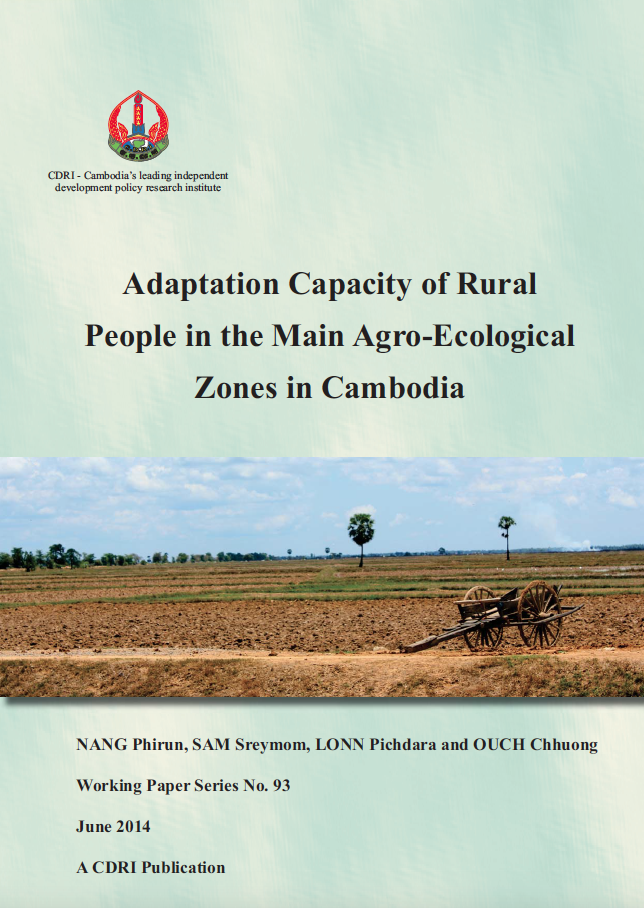
Cambodia is divided into four agro-ecological zones—the Tonle Sap plain, Mekong plain, mountains/plateau and coast—representing heterogeneous agricultural activity, population and livelihood systems (UNDP 2011b). Climate change impacts and the adaptive capacity of the people differ from one zone to another. Adaptation measures have varied according...
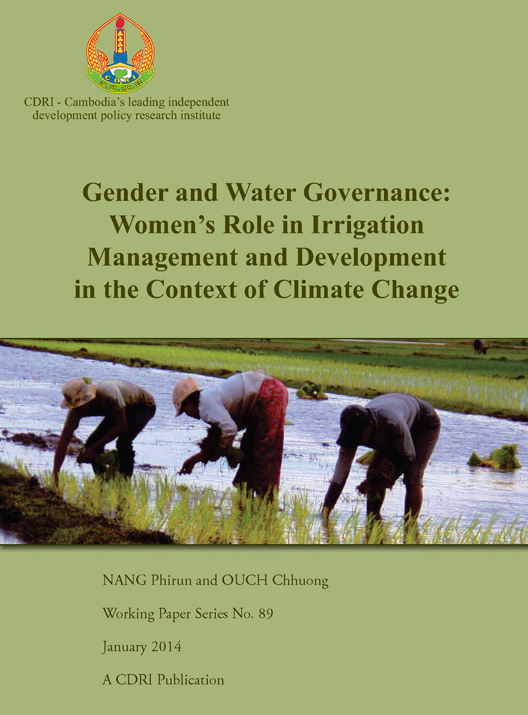
This study explores the role of women in irrigation management and agricultural development in Cambodia, particularly in the context of climate change. Drawing on fieldwork in three provinces—Kompong Thom, Pursat, and Kompong Chhnang—the research examines gender roles, constraints, and adaptive capacities within Farmer Water User Communities (...
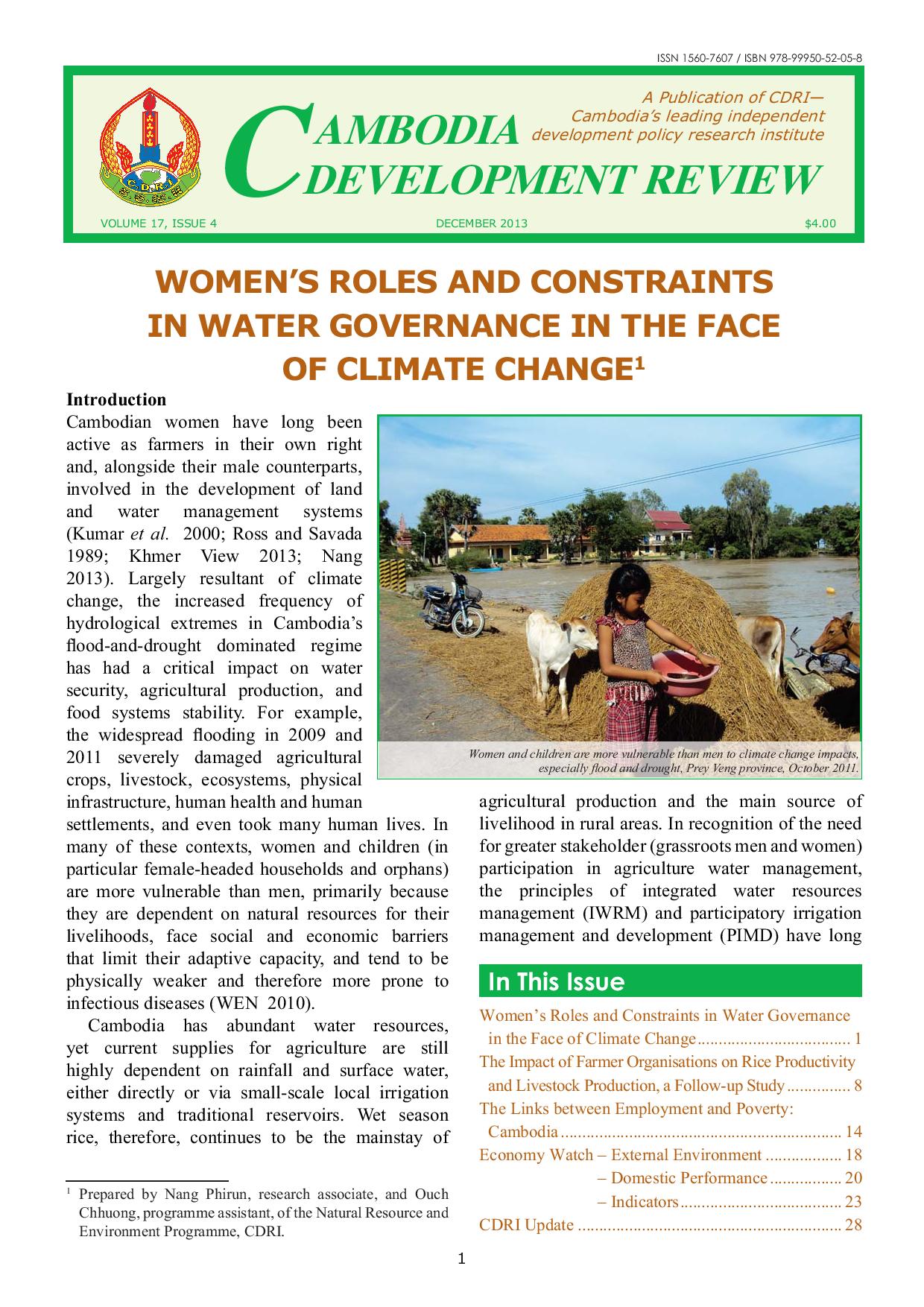
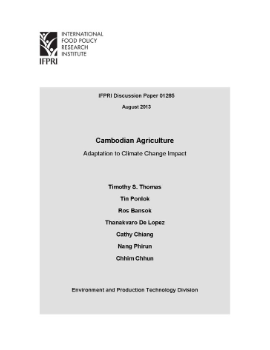
Cambodia has been identified as one of the most vulnerable countries to climate change, given the predicted changes in temperature and precipitation, the share of labor in agriculture, and the country’s low adaptive capacity due to widespread poverty. In this study, we use climate data from four general circulation models (GCMs) to evaluate the imp...
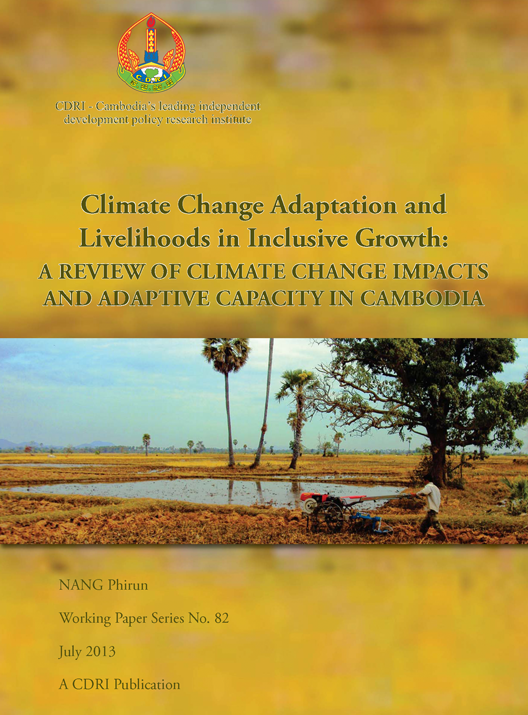
This review outlines existing knowledge (context-specific and localised) of climate change impacts, vulnerability and adaptation, assesses the limitations of different frameworks and approaches used by various initiatives in Cambodia, and identifies knowledge gaps for future research. It explores the impacts of climate change on livelihoods through...
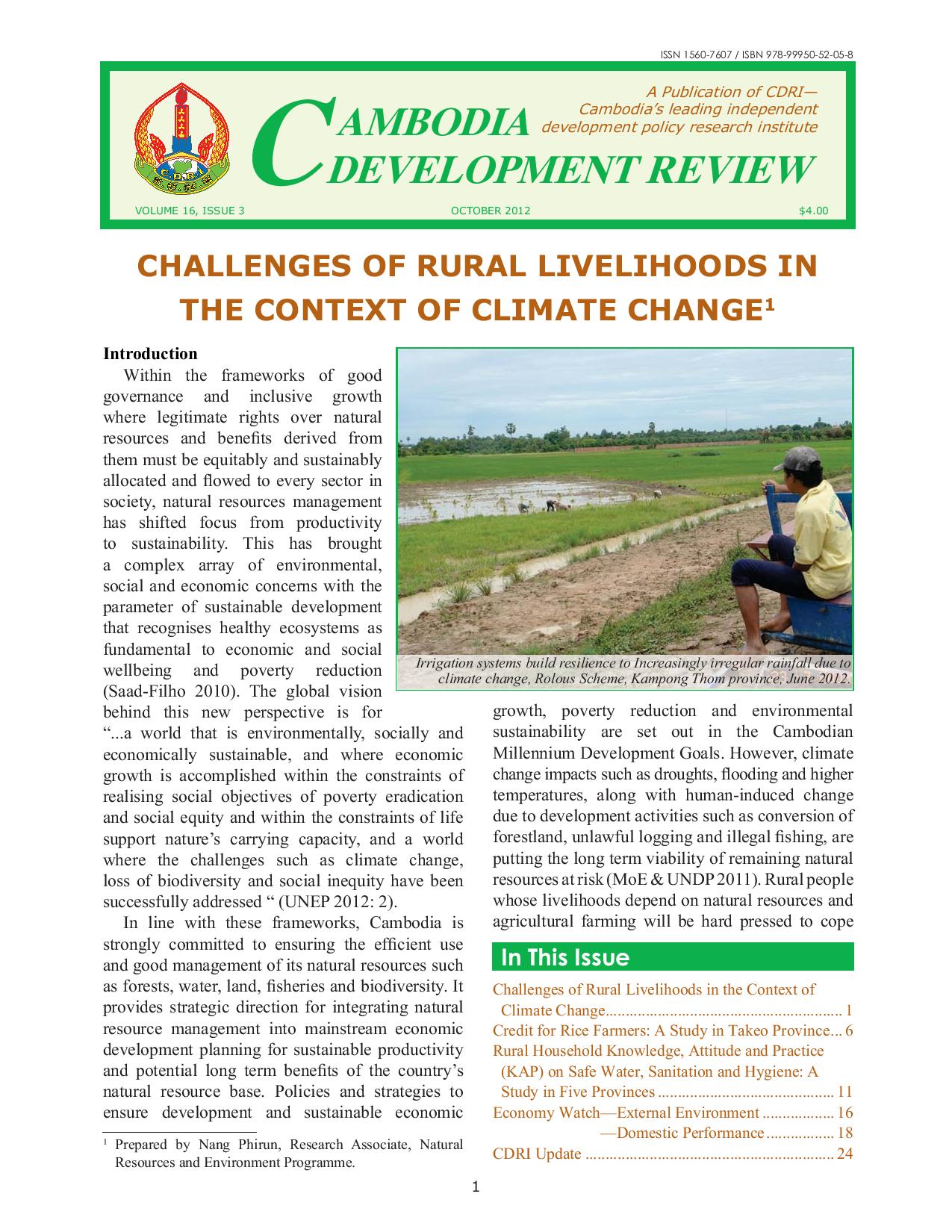
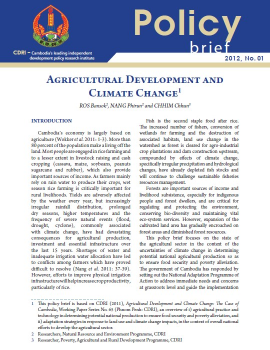
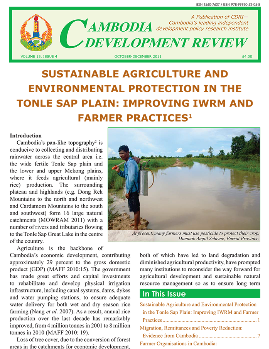
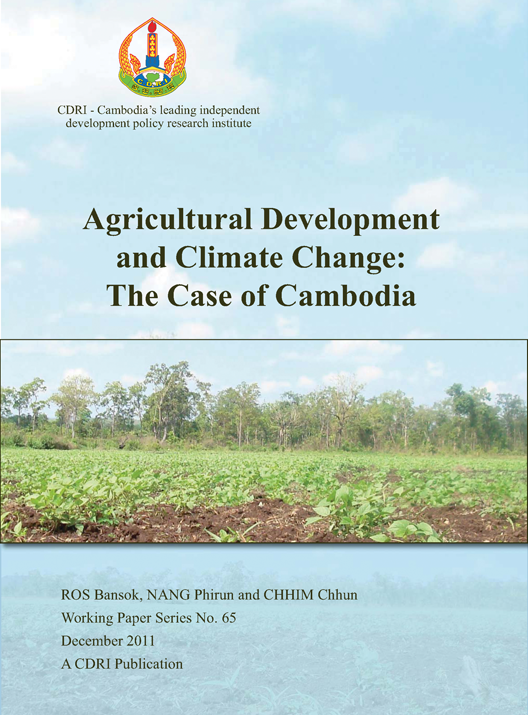
Cambodia’s economy is largely based on the agricultural sector and this sector is the main water user in Cambodia (Wokker et al. 2011a: 1-3). Several studies acknowledge that wet season rice farming is crucially important for livelihoods. With such farming being historically dependent on rainfall, the majority of lowland farmers grow just one crop...
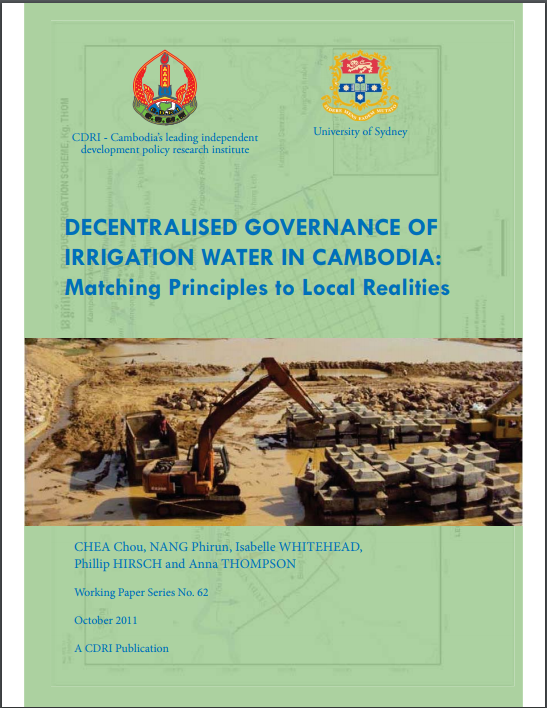
Cambodia is currently embarked on a significant programme of irrigation development. The technical design of irrigation projects has generally improved, but there remain a number of challenges in the governance of irrigation that inhibit the schemes from working effectively, equitably and sustainably. This study investigates the extent to whic...

